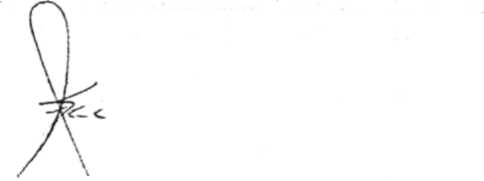THE HIGH COURT OF SWAZILAND Civil Case No.1878/03


In the matter between: SWAZI PHARM WHOLESALE (PTY) LTD And RANBAXY (SA) LIMITED t/a RANBAXY LABORATORIES DEPUTY SHERIFF FOR THE DISTRICT OF HHOHHO In re: RANBAXY (PTY) LIMITED t/a RANBARRY LABORATIES And SWAZI PHARM WHOLESALE (PTY) LTD CORAM : MASUKUJ. Applicant 1st Respondent 2nd Respondent Plaintiff Defendant
For Applicant For Respondent : Ms L.S. Masango : Mr P.R. Dunseith
JUDGEMENT 3/3/04 The Applicant herein has applied on an urge-it basis for the following relief: - 1. Dispensing with the usual forms and time limits and service as required by the Rules of this Honourable Court and (s/cjhear this matter as one of urgency.
2. Setting aside the Writ .of Execution issued by the Respondent on the 151' January, 3. Costs of this application. The history of this matter can be summarised as follows: By Summons dated 4th August, 2003, the Respondent sued the Applicant for the payment of E164, 708.35, interest thereon and costs. There appears to have been some interlocutory proceedings not immediately relevant to the question presently under scrutiny. Shorn of all the laces, an application for summary judgement was granted by Maphalala J. on the 5th December, 2003, in favour of the Respondent. Pursuant to the said judgement, a Writ of Execution was issued and it bears two dates. It is written 15th January, 2O03, by Mrs T.S. Maziya, the Deputy Registrar of this Court, in manuscript. There is also the Registrar's date stamp affixed thereon reflecting the date 9lh December, 2003. The Deputy Sheriff, armed with the said Writ, proceeded to execute on the 17th December, 2003, and various items in the Applicant's premises were thus attached. On the 19th December, 2003, the Applicant served a Notice of Appeal against the summary judgement of the 5th December, 2003. It is the Applicant's contention that the attachment took place on or about the 15th January 2004, after the notice of appeal had been filed and whose effect was to automatically stay execution. It is on that basis that the Applicant contends that the Writ, issued as it was on the 15lh January 2004, was therefor null and void and that any attachment effected pursuant thereto is by necessary extension, also null and void. The first issue to note is that the Applicant is wrong in stating that the writ sought to be set aside was dated 15th January 2004. In that regard, both prayer 2 of the Notice of Motion and paragraph 9 ofthe Founding Affidavit are incorrect as the handwritten date complained of is 15lh January 2003. Strictly speaking, on this basis alone, the application ought to fail. The Court cannot set aside a non-existent Writ.
2004.
Background
Mr Dunseith, in his argument argued that no invalidity should attach to the Writ of Execution as ft is clear that the Deputy Registrar affixed the correct date stamp Hut erred when inserting the date by hand. I agree with Mr Dunseith in this regard. The version contended by the Respondent is corroborated by evidence aliunde and the surrounding events. As earlier indicated, judgement was granted on the 5th December, 2003. It follows therefore that the Writ of Execution could not have been issued on the 15th January, 2003, not only even before the judgement was issued but before the summons was issued. Furthermore, Mr Dunseith, handed up a true copy of the Return of Service of the 3rd Respondent. This Return, as aforesaid, reflects that the attachment took place on the 17th December, 2003, which was a mere two days after the proper date of the Writ and eight Court days after the judgement. The significance of these dates is that they show a progressive handling of the matter by the Respondent towards the fmaiisation of the enforcement process. All these indications bear a tower of testimony that the Deputy Registrar erroneously inserted a wrong date, which should not, in the light of the clear evidence, be allowed to invalidate the Writ of Execution in my view. It is accordingly incorrect and in my view highly disingenuous for the Applicant's attorney to allege in paragraph 9 of the Founding Affidavit that when the attachment took place on the 17th December, 2003, the Applicant had already noted an appeal. This is inconect and flies in the face of all the documentary evidence on the record. It is abundantly clear that when the attachment was effected, the notice of appeal had clearly not been served. For that reason, it cannot be contended correctly that execution had by then been automatically stayed. In view of the foregoing, I am of the view that there is no sound reason why the Writ of Execution can in the circumstances be said to be invalid. This was a clear case of an error on the part of the Registrar's Deputy, and which should not be allowed to stand in the way ofthe enforcement of the Order. I therefor decline to set aside the said Writ of Execution as null and void. I order the Deputy Registrar to conect this obvious error. Mr Dunseith, fairly disclosed that he agreed after the appeal was noted, notwithstanding the attachment, not to proceed with the sale in execution because of the noting ofthe appeal. Mr Dunseith submitted that the sale should now proceed because the appeal must now be
deemed abandoned, regard had to the provisions of Rule 30 (4) of the Court of Appeal Rules, 1954. The said Rule reads as follows: - "Subject to Rule 16 (1), if an appellant fails to note an appeal or submit or resubmit the record for certification within the time provided by this Rule, the appeal shall be deemed to have been abandoned. " It is an indubitable fact and which Ms Masango did not contest, that the record has not been submitted and if one has regard to the provisions of the above Rule, the appeal is deemed abandoned. See MUSA MAGONGO VS SWAZILAND DEVELOPMENT AND SAVINGS BANK AND ANOTHER CIV APP. CASE NO. 27/2000 an unreported judgement of Zietsman J.A. at page 2. Ms Masango, however argued that it is not open to this Court to consider the question whether or not the deeming provision comes into operation. It was her contention that this is the exclusive preserve of the Appeal Court, in as much as it is that Court that is entitled to condone late filing e.t.c. in terms of provisions of Rules 16 and 17 of the Rules of the Appeal Court. Where a party contends that the appeal must be deemed abandoned and that therefor the stay consequent upon the noting of an appeal is ineffectual, it is not correct in my view to argue that that determination is the exclusive domain of the Appeal Court. This Court can and should determine on the facts whether or not Rule 30 (1) has been complied with and by necessary extension, whether the stay is still in operation. This is in my view more pronounced in the present situation where there is no Appeal Court and where some parties can note an appeals with no intention to prosecute them but to prolong the stay of execution for as long as possible. Surely this Court should be able to intervene and to declare that the appeal is deemed abandoned in terms of the provisions of Rule 30(4), and allow the successful party to taste the fruits of its success. It is clear in casu, that the Applicant was alerted by the Respondent that in the light of the former's failure to lodge the record within the time stipulated in Rule 30.(1), the appeal is deemed to be abandoned. This is contained in a letter dated 20th February, 2004, which must have been the catalyst for the present application. Before that letter, it would appear that the Applicant was content to maintain the status quo, making no efforts to ensure that the appeal is brought closer to prosecution by submitting the record as required by Rule 30 (1). In an
unreported judgement of ANDREAS STEPHANUS VAN WYK AND ANOTHER VS BKL, a division of BARLOWS CENTRAL FINANCE CORPORATION CIV APP. CASE NO 44/2000, Tebbutt J.A., stated the following regarding compliance with the above sub-Rule at page 4:- "Non-compliance with Rule 30(1) has, therefore, drastic consequences for an appellant and accordingly, meticulous compliance with its provisions is required". Not only has the Applicant not complied with the above provisions, but it has also failed to bring an application for the extension of time within which to submit the record. Furthermore, it does it appear that an application for condonation has been filed by the Applicant, for determination by the Court of Appeal. It is an ineluctable fact that there is presently no application granted by the Appeal Court and in terms of which the Applicant prayed for and was granted an extension of time to lodge the record. Until such time that an Order is granted, I am of the view that no appeal is pending and the execution of the judgement of this Court is accordingly not stayed. It is in my view critical to reiterate the wise remarks of Tebbutt J.A. in the ANDREAS VAN WYK Case (supra), at page 6, where the learned Judge of Appeal emphasised the need to comply with the Rules of Court of the Court of Appeal. He said: "The Rules of this Court are there not only for the guidance of practitioners but to ensure that the work of this Court can be conducted efficiently, for the benefit of litigants and to ensure the proper administration of justice. Failure to comply with them redounds to the detriment of the Court in that it prejudices other practitioners, affects the interests of litigants and is disruptive of the working of the Court. " In view of the foregoing, I am of the view that this application be and is hereby dismissed with costs. Mr Dunseith, applied for punitive costs, in view of the circumstances of the application, especially that the Applicant knew of the Writ on the 17th December 2003 but pretends not to be aware of it in the application. He also urged the Court to consider the fact that the Applicant did not disclose certain pertinent facts in its application, which facts were subsequently raised by the Respondent in its Answering Affidavit and which cast a completely different complexion on the matter. 1 consider adversely to the Applicant, the
very short notice of two hours, which effectively amounts to no notice, within which the Respondent was called td Court to answer to this application. For all intents and purposes, this application can be considered on the same terms as an ex parte application, which requires a full and frank disclosure of all the pertinent facts, a principle that the Applicant departed from in casu. - See MAKHOWE INVESTMENT VS USUTU PULP LTD. I am of the view that the attorney-client costs applied for by the Respondent are in the circumstances justified and are accordingly granted as prayed.

